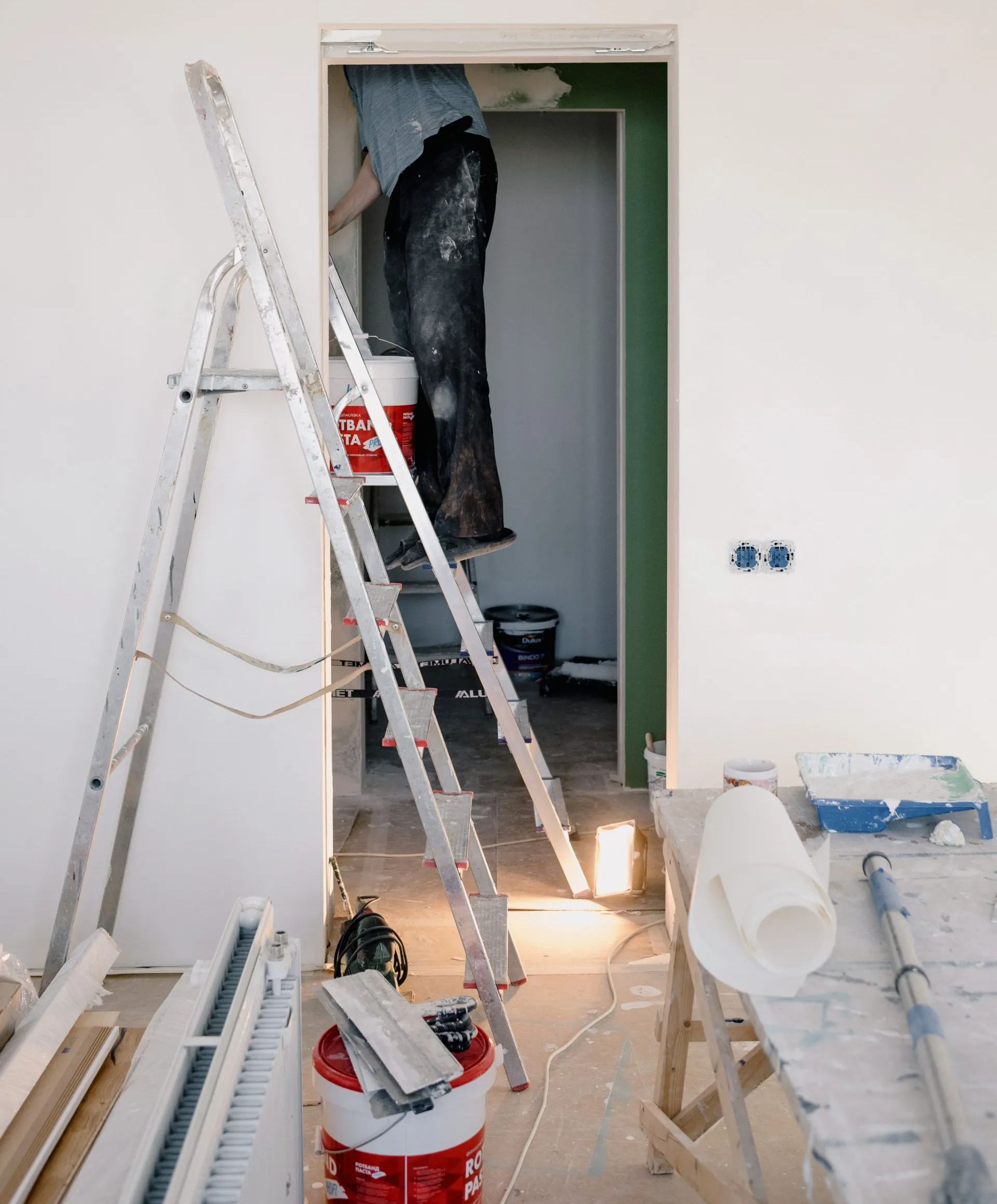Unfinished Projects
Selling a House With Unfinished Projects

There are a number of scenarios that can lead to people putting their home on the market with unfinished projects. Maybe you were in the middle of remodeling or renovating when you got a new job offer, or a sudden illness or family change is forcing you to relocate to be closer to family. Alternatively, you may have just run out of funds before you could finish all the remodeling projects you had planned.
The most important thing to recognize is that most renovations have a negative return on investment, meaning the increase in your home’s valuation will be less than the amount of money you spend on remodeling. For example, spending $35,000 to add an in-ground pool to your backyard might only increase the sale price by $20,000.
In other words, spending more money to finish the projects you’ve started may be a waste of money. However, there could be scenarios where an unfinished project makes your home difficult to sell. You can’t get away with not finishing rewiring or repiping if you were mid-project when some life event forces you to sell.
Whether you need to finish the project is highly dependent on whether the project is central to your home’s overall functionality as a livable dwelling and the extent of the impact. If you tore out landscaping to add new grass, gravel, trees or shrubs, failing to finish it could negatively impact the curb appeal of your home, but the ultimate cost of finishing the projects may cost more than it will increase the value of your home.
In that particular example, it’s possible the homebuyer won’t like your landscaping choices and will end up tearing them all out right after buying. This is also common with things like interior paint where a new buyer may have different aesthetic preferences from your own. Finishing the job may have no impact on the price because the buyer has no plans on keeping the changes you make.
How a Real Estate Agent Can Help
It’s hard to predict how some types of unfinished projects will influence the offers you receive on your home, which is one of the reasons why your choice of real estate agent is so important. An experienced local real estate agent can help you evaluate the extent to which unfinished projects will influence the sale price. They may also be able to provide suggestions on low-cost temporary fixes that will allow you to sell your home with minimum cost.
Assessing and Prioritizing
If you were in the middle of whole-home renovations when you ran into budget shortfalls or were otherwise forced to put your home on the market suddenly, you’ll need to assess what must be finished and what doesn’t need to be finished to make your home livable and marketable.
In most cases, purely aesthetic projects are not vital to your home being sold. Although they can have a marginal impact on the curb appeal of your home, there’s a possibility the new buyer will want to redo these things after the sale is finalized.
They might also request certain things be finished during negotiations. For example, in a room that’s half painted and missing floorboards, they may ask that the remaining floorboards be installed but not care about the paint.
It’s important to keep in mind that leaving a room half painted means you’re passing the labor and cost of finishing the painting on to the new buyer, and they may want an appropriate reduction in your asking price to compensate them. Depending on your situation, you might be fine with those little reductions just to get the sale finalized.
Alternatively, if you have a good real estate agent who has managed to get a bidding war started for your property, buyers might be willing to just eat these costs to acquire your home.
Do You Need to Incentivize Your Home Purchase?
This is also highly dependent on local inventory, the demand for homes in your neighborhood and how much buyers want your home. If there’s nothing special about your home and it’s just one of many for sale in the neighborhood, you may need to offer incentives to get buyers to take on the extra cost of finishing unfinished projects. This typically means lowering the asking price based on an estimate of project completion costs, offering to cover closing costs or other concessions on transaction costs.
Get Help Selling Your Home in Any Condition
The team at 72SOLD leverages highly effective home-selling strategies to sell homes quickly for the best possible price. We can even sell homes with unique challenges that could potentially make them less appealing to buyers – like unfinished projects. We have a proven reputation for getting our clients exceptional bids quickly.







